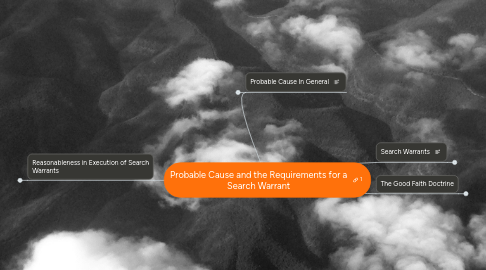
1. Probable Cause In General
1.1. Search
1.2. Seizure of Property
1.3. Seizure of Person
1.4. Arrest
1.5. Terry Stop
1.5.1. Terry Frisk
1.6. Encounter
2. Reasonableness in Execution of Search Warrants
2.1. Scope of Search
2.2. Knock and Announce Rule
2.2.1. Exception for Futility
2.2.2. Exception for Danger
2.2.3. Exception for Inhibiting Purpose
2.2.4. Richard v. Wisconsin, 520 U.S. 385 (1997)
3. Search Warrants
3.1. Neutral and Detached Magistrate
3.2. Supported by Oath or affirmation
3.3. Based on Probable Cause
3.3.1. Spinelli v. United States, 393 U.S. 410 (1969)
3.3.2. Illinois v. Gates, 462 U.S. 213 (1983)
3.4. Particular Description of Person or Items to be Seized
3.4.1. Groh v. Ramirez, 540 U.S. 551 (2004)
3.4.2. Maryland v. Garrison, 480 U.S. 79 (1987)
4. The Good Faith Doctrine
4.1. United States v. Leon, 468 U.S. 897 (1984)
4.2. Categorical Exceptions to Good Faith
4.2.1. When warrant application is so egregiously lacking in probable cause that no officer could have reasonably relied on the application.
4.2.2. When a warrant is so facially deficient in particularity that no reasonable officer could presume it to be valid
4.2.3. When the warrant application contains knowing or reckless falsehoods that are necessary to the probable cause finding
4.2.4. When the magistrate who issues the warrant is biased in favor of the prosecution

